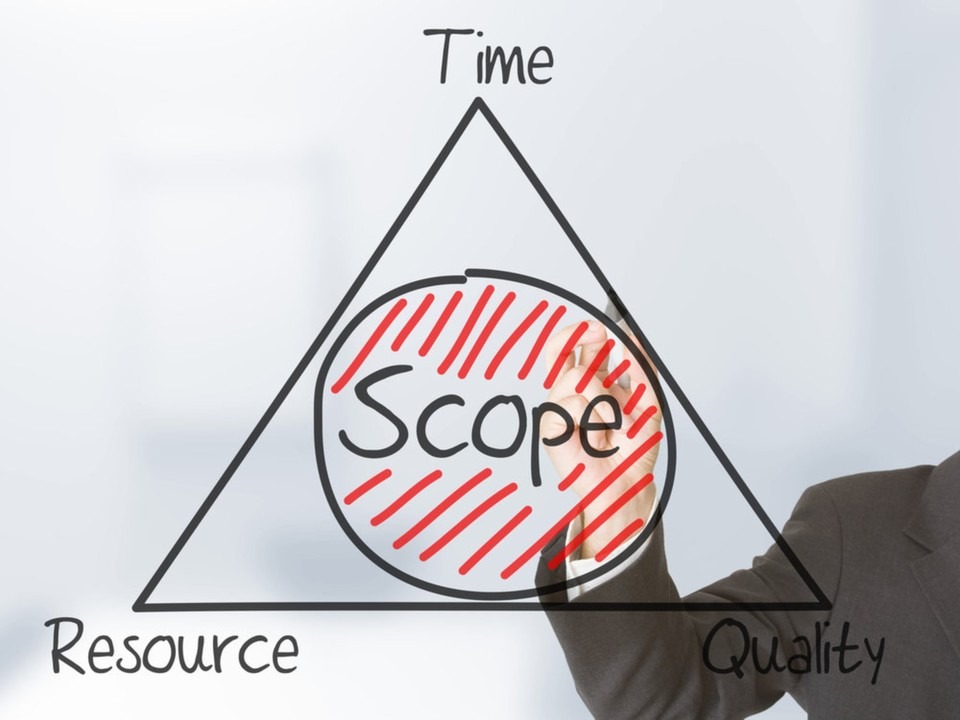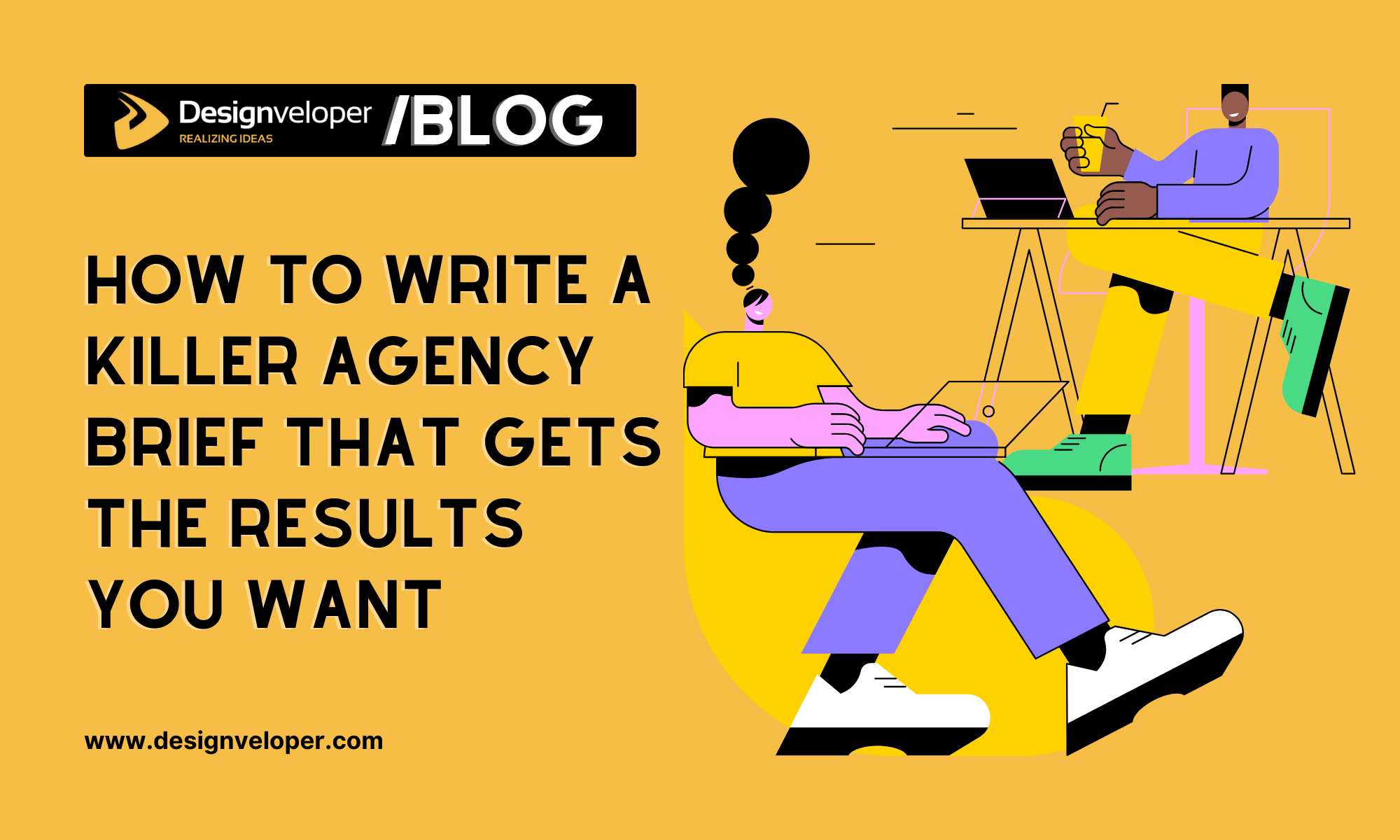
Seeking help from external experts is a powerful business move. As a business, outsourcing your marketing, accounting, HR, or other business functions to an agency means you don’t need to invest in in-house experts. Agencies are also a great avenue when you want to dip your toes in a service or know that you won’t need a task done long-term, like graphic design, digital marketing, and content creation. However, to make the most of working with an agency, it’s essential to understand how to write an agency brief. A well-crafted brief ensures clear communication and alignment on goals, making the collaboration more efficient and effective.
However, no matter how experienced the professionals you’re working with are, the work you receive will only be as good as your briefs. A brief is a description of the task you need to perform, which should include every detail the agency needs to do the work and get the results you desire.
How to Write an Agency Brief in 5 Simple Steps
Writing briefs might sound simple, but when you take a relaxed approach to the brief, you might be left with a job that didn’t perform as well as it could have. In this article, we’ll walk you through some key steps to writing a killer brief.

1. Create a Brief Process and Communication Methods
When working with an agency, you first want to figure out some ways of working and processes for efficiently communicating and submitting briefs. How will you inform the agency of a new task required? How will you send the brief over to them? One way to do this is to send briefs by email or upload them to a shared drive with the help of tools like ZIP to PDF converters. Another is to use a work management platform like Asana. These tools allow you to create tasks on your end and see when your partners have completed them.
Whatever method you decide to use, the key is to make your briefs readable, downloadable and shareable for your agency. If you’re emailing them briefs, for example, choose a universally readable file type. It’s also vital to be consistent: your partners should know exactly where to find your briefs every time.
2. Understand the Agency’s Scope
When working with an agency, get as clear as possible about the scope of their services. This will help you refine exactly what to ask for, as well as results you may not have considered. For example, if you require some assistance in your social media publishing, your agency might offer a full service where they study performance and provide reports to you. By understanding this scope, you can get as much support as you need and get better results for the service you’re paying for.

On the other hand, if you assign work to an agency that doesn’t offer the work, they may attempt to do it and miss the mark. If you’re outsourcing to a UX agency, for instance, you might not get value out of asking them to write content for you. Similarly, an agency that focuses solely on web development probably won’t have the capacity to do large-scale graphic design for you. In the long run, this may lead to lower-quality output. Before assigning a brief, strive to understand what a particular agency can or can’t do. If there’s anything you aren’t sure about, it never hurts to ask questions.
3. Be as Detailed as Possible
A good brief tells your partners everything they need to know to get the job done successfully. When writing a brief, consider all the questions they might ask you and try to address them. This might include project dates, milestone deadlines, budget, point of contact, account logins, task description, tone of voice and relevant links, among many other details. You can also explain what targets you would like to hit if appropriate and that you would like performance reports. You should always have a clear idea of the output you have in mind and communicate this clearly to the agency.

Detailed briefs help you save resources. For instance, if you’re working on an app, writing comprehensive briefs may reduce development costs by decreasing the number of hours your agency bills for, as they won’t need to spend time asking you plenty of questions and making avoidable mistakes. Detailed briefs also reduce the completion time of tasks, which helps your entire business operate more efficiently.
4. Aim for Simplicity
While we have just covered the importance of details in your briefs, this can still be done with simplicity. Keeping your briefs simple will make them easy to understand. Start by avoiding language and terminology that only people in your company would know, and always opt for a more basic word over a complicated one if it gives the same message. You should also avoid being superfluous: if it’s possible to get a point across in fewer words, you should always do so.
When you aim to write agency briefs that are clear, concise and to the point, you’ll have less back and forth with your agency answering questions, and you’ll get better results more quickly. Briefs that are easy to understand will save you a lot of time in communications, which gives you extra capacity to work on other tasks and grow the business.
5. Create Agency Briefs that Deliver Just as Planned

Writing agency briefs is simply about communicating the task or service that you need to be done. A lot of the information about this task might seem obvious, but often the details are known within your company or even your own mind, and it needs to be shared through the brief. Once you’re able to nail your briefs, your work with agencies will be smoother and more efficient, helping you make the most of their service. Remember to create a brief process, understand the agency’s scope and be as detailed as possible while keeping it simple, and you’ll be well on your way to crafting perfect briefs that get you the results you want.
FURTHER READING: |
1. What is the Quality Assurance Process? |
2. 10 Best Online Web Development Bootcamps and Detailed Guide |
3. Top 10 iOS 14 Features That Can Help You |
Conclusion
In conclusion, writing a well-structured agency brief is not just about providing information — it’s about setting the foundation for a successful partnership. By ensuring clear communication and aligning on goals from the outset, you empower your agency to deliver the results you need. At Designveloper, we believe that a thoughtfully crafted brief can make all the difference in achieving a seamless, productive collaboration. Whether you’re working on marketing, design, or development, investing time in creating a solid brief will ultimately lead to more effective outcomes and a stronger working relationship.






Read more topics
You may also like





























































